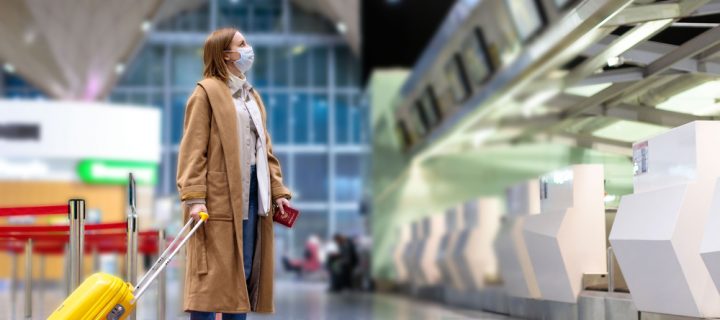The new recommendations can make your life easier.
According to new guidance issued by the Centers for Disease Control and Prevention (CDC) in early April 2021, if you have been fully vaccinated you can now travel at a low risk to yourself within the continental US.
So, what does this mean, exactly?
Well, simply put, if you are vaccinated against the coronavirus, you are now unlikely to fall gravely ill by contracting the virus through travel, (or by doing anything else). So, if you get on a plane and there happen to be other infected passengers on board, you could catch the virus, but it is very unlikely that you will end up in the hospital because of it, if you are vaccinated. You, personally, are at a low risk.
Remember, this does not mean you have a free pass yet, however. It doesn’t mean that others you will be around are necessarily at a low risk. If your friends and family have yet to be vaccinated and you catch the virus on the plane, (even while vaccinated, yes it can happen), and you carry the virus home, the unvaccinated people in your household and workplace will then be at high risk. They can still get terribly sick with the coronavirus. The unvaccinated people you are around can catch the virus from you if you are exposed, and they can die from it. So, there’s that.
Travelling Still Not Advised
On that note, before going any further let’s point out that traveling, in general, is still frowned upon. Non-essential travel is still not supported by health experts. As the CDC director, Dr. Rochelle Walensky, said to CNN’s Anderson Cooper earlier this spring,
“We are very worried about transmissible variants. A lot of them have come through our travel corridors, so we’re being extra cautious right now with travel.”
Related: Do You Really Need to Wear Two Masks?
Some people will have to travel for one reason or another, of course. If this is you, and you are vaccinated against the coronavirus, you can now abide by some new, government approved guidelines. Here they are in a nutshell, according to the CDC.
You Should Continue to Practice Precautions
If you are traveling, keep doing what you do every day: practice social distancing, wear your mask, and wash and/or sanitize your hands regularly.
You Don’t Need to Be Pre-tested
If you are traveling within the US (domestically) and you are fully vaccinated, you do not need to be tested for COVID-19 before boarding your plane.
You Can Skip Quarantine
Feel free to get right back to your regular life once you return home, if you have already gotten the jab.
You Should Still Get Tested Before Boarding a Plane
If you are traveling internationally, things are a bit different. In this case, you should get tested in this case for COVID-19 before flying back home to the US.
You’ll Need a Test Upon Return
Once you are home from international travel, even if you have been vaccinated, you should get tested for the virus anywhere from three to five days after you return.
The pandemic is not over yet. With the original virus still in circulation and variants on the rise, we have a way to go. Of course, the variants have yet to take over the entire scene. None of them, at the time of this writing, are of “high consequence” according to the CDC, but some coronavirus variants in the US are of “interest” and “concern”. And so, this should be enough to make you pause. As Walensky has commented, when we all travel around more, such as around holidays, there is a growth in COVID-19 cases, and this is something we all want to avoid, (ie, please stay home, or close to it).
For more information on the coronavirus and travel, check out the following links. There are tips for driving with strangers in your car during the pandemic, and all you need to know about the coronavirus and air travel. Read up!
photo credits: DimaBerlin/Shutterstock.com












